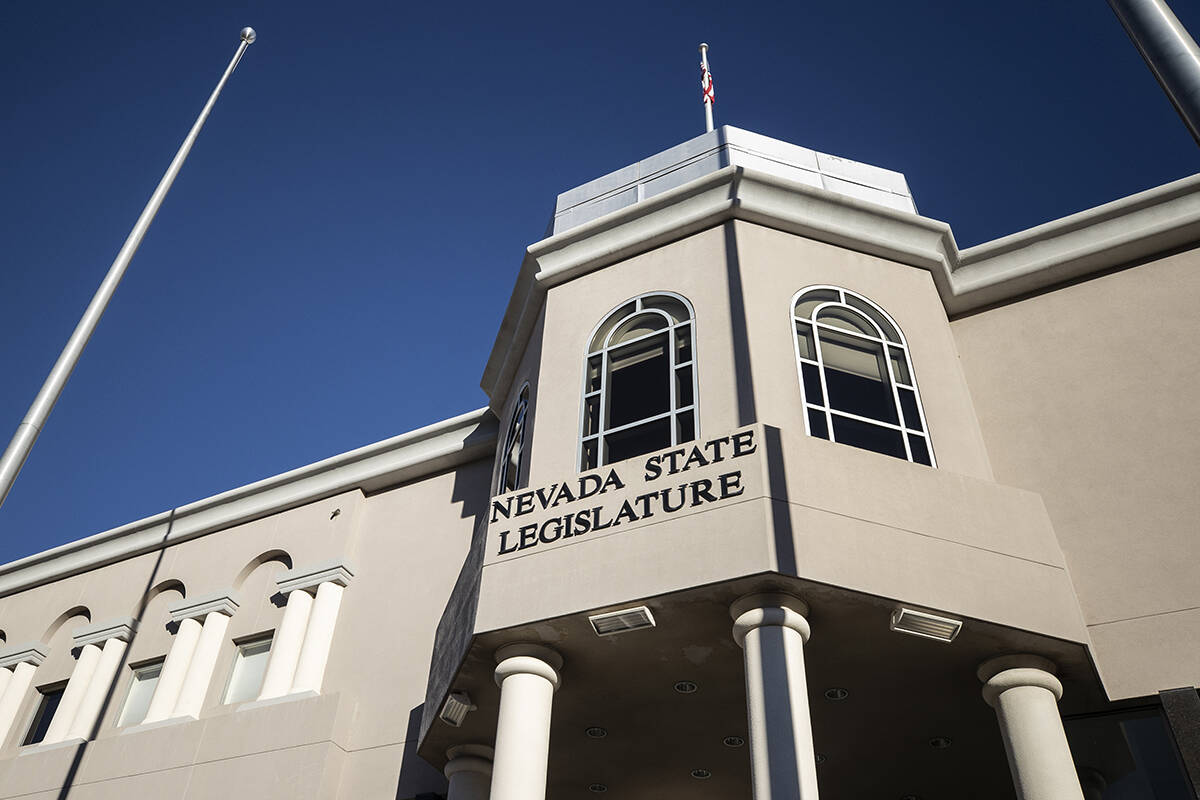EDITORIAL: High cost of government on government lobbying
The Nevada Department of Taxation has released a report revealing that various local governmental entities spent nearly $5.2 million to lobby the Legislature during the session that ended in June. That beat a record set in 2023.
Leading the way was Washoe County, which dropped $627,103. Clark County ran second at more than $566,000, followed by the city of Las Vegas at $430,284. Other agencies with a prominent presence in Carson City included the Metropolitan Police Department, the Regional Transportation Commission, the Southern Nevada Water Authority and the Clark County School District.
It’s an overlooked irony that, on one hand, Democrats routinely decry special interests roaming the legislative halls attempting to influence bills while, on the other, they eagerly promote the expansive and intrusive government that breeds lobbyists. In fact, lobbying — whether used by grassroots organizations or corporate entities — is protected speech and an important part of the democratic process.
But there’s a large difference between private interests spending their own money to amplify their voices and government entities arm-twisting lawmakers in pursuit of an agenda that may or may not be in the best interests of the taxpayers who are forced to pay for it all. Some Nevada agencies and governments even outsource efforts to professional lobbying firms, which profit from these incestuous public-sector arrangements.
“The challenge with taxpayers funding lobbyists,” Chuck DeVore of the Texas Public Policy Foundation told Reason.com, “is they they’re being forced to pay for services that typically run contrary to their interests,” because the lobbyists “invariably lobby for bigger government, more borrowing, higher spending and more regulation.”
The National Council of State Legislatures reports that about a dozen states — including neighboring Arizona — have laws preventing local governments from using public funds to retain a lobbyist. That means they must use existing full-time employees to communicate with lawmakers.
Such restrictions are a good start. There’s a reason why governmental entities are prohibited in Nevada and virtually every other state from promoting ballot questions or using taxpayer money in an effort to influence an election. Voters shouldn’t be forced through their tax contributions to subsidize political initiatives they don’t support.
In a perfect world, lawmakers would embrace small government, making it less likely that private entities would seek to influence the legislative process to advance their own interests or to protect themselves from an activist state. But it’s not a perfect world, of course. At the very least, Nevada should take a page from Arizona and limit local governments from using taxpayer funds to hire outside lobbying firms.

















